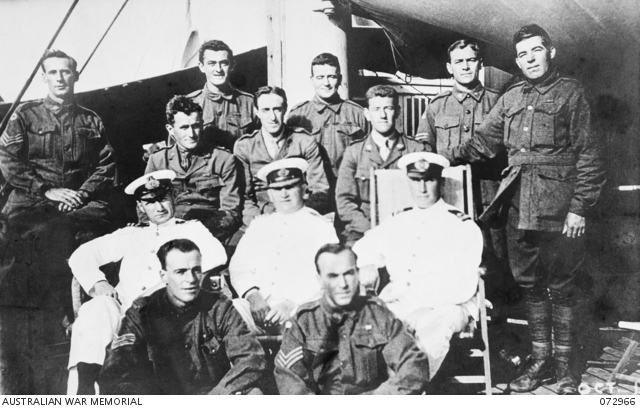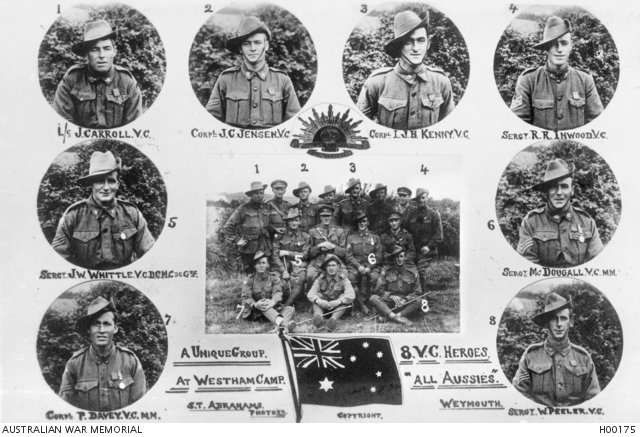| Service number | 4061 |
|---|---|
| Ranks Held | Private, Sergeant |
| Birth Date | 23/07/1890 |
| Birth Place | Australia: Tasmania, Recherche |
| Death Date | 07/07/1968 |
| Death Place | Australia: Tasmania, Hobart |
| Final Rank | Sergeant |
| Service | Australian Imperial Force |
| Units |
|
| Places | |
| Conflict/Operation | First World War, 1914-1918 |
Sergeant Stanley Robert McDougall


Stan McDougall (1889-1968) was born in Tasmania, and became a blacksmith. He enlisted in August 1915 and fought at Pozières, Messines and Broodseinde. He was promoted to sergeant in January 1918.
At Dernancourt, when he saw the enemy knock out a Lewis gun position, he attacked two German machine-gun teams, killing their crews by "hosing" them with the Lewis. He then attacked a second wave of Germans, burning his hands on the hot barrel casing of his gun. When a German officer aimed his pistol at some Australians, McDougall killed him with a rifle and bayonet. Twenty-two Germans were killed and 30 were captured, largely as the result of McDougall's actions. Eight days later, at the same place, McDougall won the Military Medal, taking over the platoon when his commander was killed.
After the war McDougall became an officer with the Tasmanian Forestry Department, and later, while inspector-in-charge of forests in north-east Tasmania, performed outstanding work during bushfire periods. He died at Scottsdale in 1968






